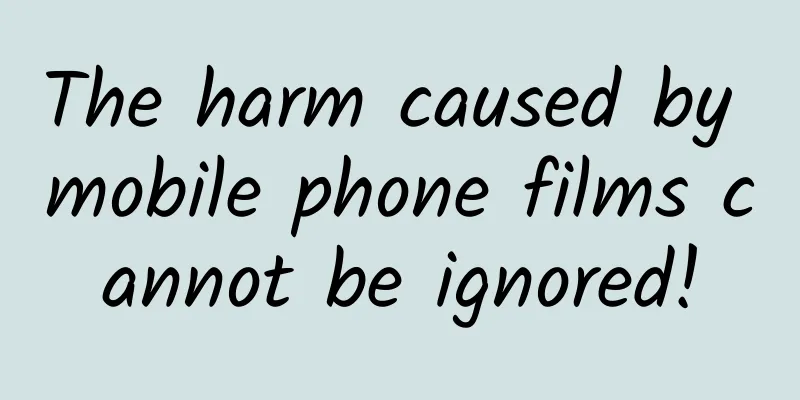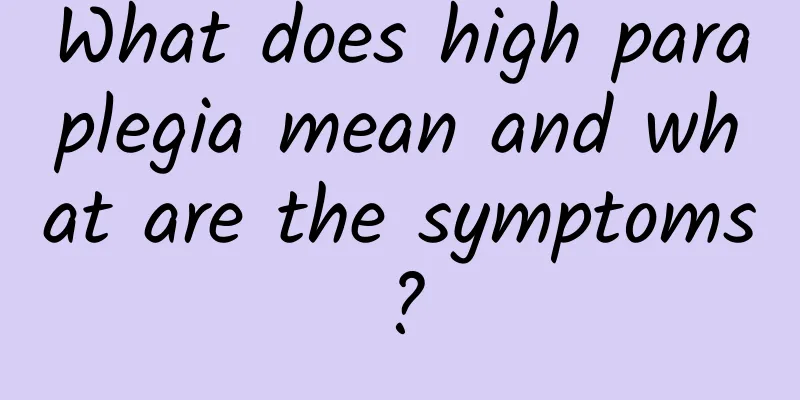What causes hoarseness?

|
I believe that many people have encountered the problem of hoarseness. Various physical problems may cause hoarseness, such as inflammation, trauma, tumors, nerve paralysis, hysteria, etc., which are all causes of hoarseness. To treat the symptoms of hoarseness, different treatment methods need to be adopted. In addition, you must also take good care of your throat in daily life. Here I will introduce to you some relevant knowledge about hoarseness!
1. Causes of hoarseness 1. Inflammatory 1. Acute inflammation: acute bacterial upper respiratory tract inflammation, acute viral upper respiratory tract inflammation, upper respiratory tract inflammation caused by toxic substances, diphtheria, measles, scarlet fever, etc. 2. Chronic inflammation: chronic laryngitis, atrophic laryngitis, vocal cord nodules, laryngeal contact ulcers, occupational laryngitis, laryngeal tuberculosis, laryngeal sclerosis, laryngeal fungal disease, etc. 2. Trauma Contusion, blast injury, cutting injury, penetrating injury, etc.
3. Tumor 1. Benign tumors: including non-true tumor proliferative tissues, such as laryngeal polyps, cysts, mucosal hypertrophy, amyloid degeneration, polypoid hemangioma, papilloma, etc. 2. Malignant tumors: Squamous cell carcinoma is the most common malignant tumor of the larynx. 4. Paralysis Superior laryngeal nerve paralysis, unilateral recurrent laryngeal nerve paralysis, bilateral recurrent laryngeal nerve paralysis, interarytenoid muscle paralysis, thyroarytenoid muscle paralysis, unilateral posterior cricoarytenoid muscle paralysis. (V) Hysterical
(VI) Others Laryngeal webs, laryngeal keratosis, laryngeal leukoplakia, cricoarytenoid arthritis, etc.
2. Treatment Methods Different treatments can be used for different diseases and different causes: inflammatory diseases are mainly treated with anti-inflammatory methods, combined with hormones, and local treatments include nebulization inhalation, blockade therapy, physical therapy, Chinese medicine, etc. Benign tumors are planned to be removed surgically, and malignant tumors can be treated with a combination of chemotherapy, radiotherapy, and surgery. Patients with damaged laryngeal motor nerves can choose laryngeal stent surgery and laryngeal neuromuscular surgery in addition to treating the primary lesions. Those with hysterical aphonia can use suggestive therapy and psychotherapy. 3. Daily care 1. When hoarseness is detected, ask the patient to speak less to allow the vocal cords to rest. 2. Strengthen oral care, keep local moisture, give nebulizer inhalation, oral B vitamins and hormone treatment to reduce edema, nourish nerves and promote recovery. |
<<: The tongue will give the first sign of illness
>>: Precautions after renal puncture
Recommend
Why do I sweat after drinking hot water?
Sweating after drinking hot water is mostly a nor...
Why is the white skin on the glans peeling off?
If a man's glans penis begins to peel, it may...
What foods are good for calcium supplementation?
Calcium plays a very important role in our human ...
Remember these two methods to eliminate toxins from your body in one day!
I believe everyone is familiar with the word &quo...
Back pain on both sides
If you work or study in the same posture every da...
What to do if your baby keeps clearing his throat
The throat is a particularly important tissue for...
Symptoms of herpes on penis, symptoms of genital herpes in men
Herpes is a relatively common skin disease and is...
What Chinese medicine do cancer cells fear the most?
People will feel very scared when they hear about...
Is tracheitis contagious?
Many people are asking if tracheitis is contagiou...
White liquid squeezed out of the glans
The male genitals are private parts and are also ...
What can I eat to cure pharyngitis quickly? What foods are effective for chronic pharyngitis?
Pharyngitis is a disease of the throat. People wh...
Symptoms of sprouted potato poisoning
Potato poisoning, also known as potatoes, is a goo...
How long should I eat Luo Han Guo to treat pharyngitis?
Monk fruit is a fruit with relatively high nutrit...
What are the foods that nourish the kidneys? Men often eat these to nourish the kidneys
For men, kidney deficiency is likely to induce sy...
What are the symptoms of gastritis?
Gastritis is a relatively common disease, which i...









